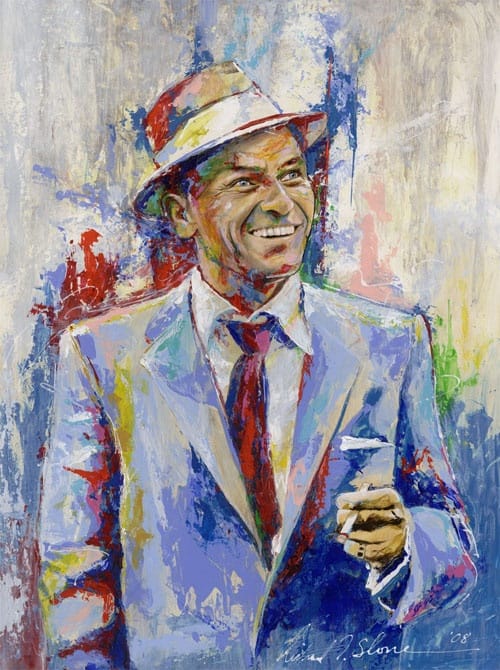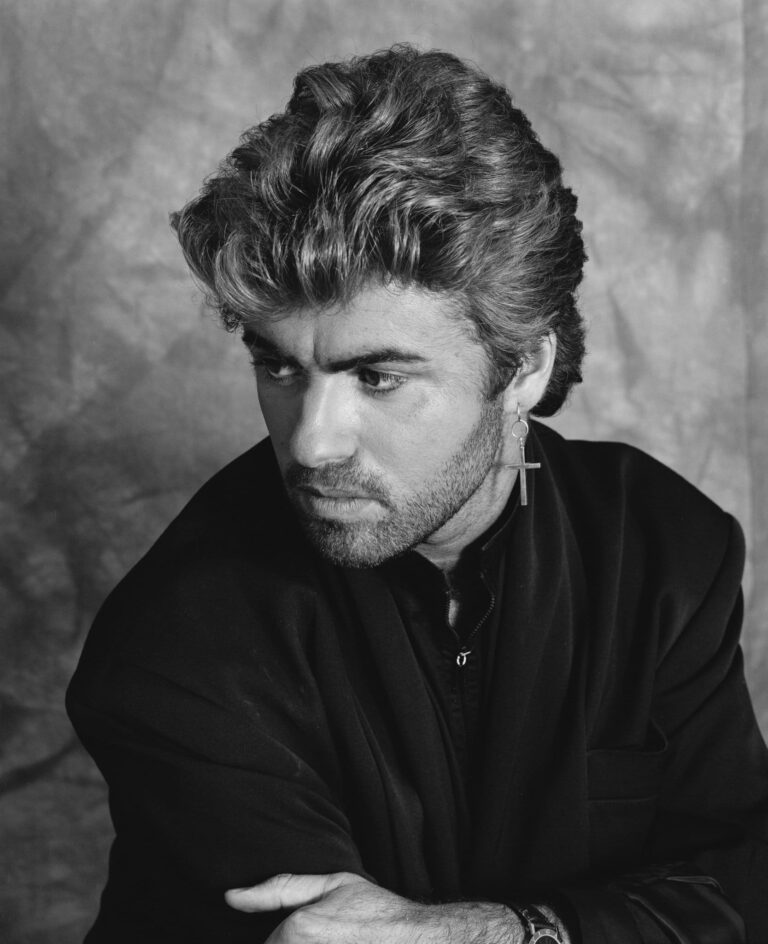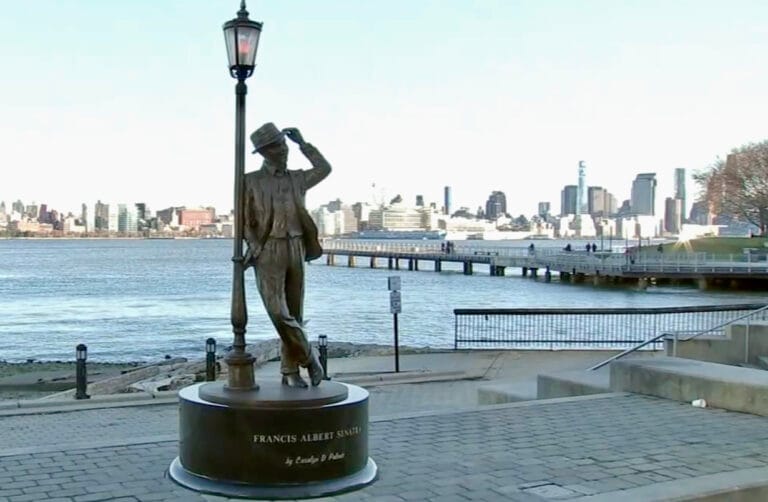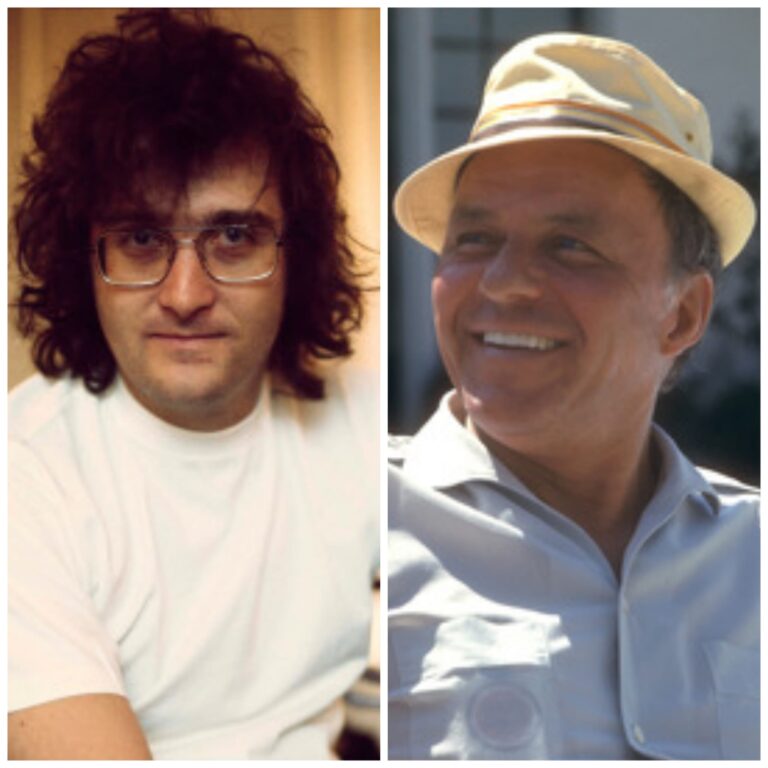
THE LAST YEARS OF FRANK SINATRA
EPISODE 17
By Mahnuel Muñoz
In 1998 there are many people who wonder what happened to Frank Sinatra. His music and films continue to be reissued and bring happiness to the world; The website run by his daughter Nancy gives a good account of his artistic legacy, his numerous works of charity and his glorious history; The health problems he causes and the family disputes over his inheritance are known, but in the statements written by Susan Reynolds, the person in charge of public relations, no mention is made of the reality that exists behind the doors of the Foothill mansion.
Sinatra is said to be fine, and the doctor’s visits are for routine checkups. “He has been a private person his entire life, and he has personally asked that people respect his privacy,” says Reynolds.
915 Foothill Road is a mansion surrounded by a wall forty meters long and six meters high and a thick opaque door that does not reveal the house. When a vehicle enters or leaves the property, some curious gaze searches among the ferns, palm trees and orange trees that line the driveway for a piece of the gray facade of Sinatra’s house. The tourist buses that make routes in front of the homes of famous people do not pass through here. There are no curious fans either. It’s like no one knows that Sinatra is just a few meters away. Only service vehicles park in front of the door or access the property.
In the darkness of his room, Frank slowly but unstoppably wastes away. A cloud of daydreams passes through the ruined rooms of his mind. The memories break in the legendary ocean of his eyes, like a vain foam of obsessions and delusions, in a dense mix between reality, black and white frames and songs played by a large orchestra. Perhaps at some point he comes to wonder if he had really lived.
Barbara has decided to change the staff responsible for caring for her husband from registered nurses to much lower-paid interns; a petty and completely inappropriate decision for a person with such a precarious state of health.
In February, in a follow-up visit at Cedars Sinai Hospital, the urologist detected that the urethral cancer had recurred, although to a lesser extent than the previous time. A probe is inserted into the patient again, and hospital admission is not contemplated. While at home, and with Barbara fulfilling her annual commitment to the charity golf tournament, Frank suffers a distressing episode in which he is in great pain and expels copious amounts of clotted blood. His daughters watch helplessly as their father suffers, as Barbara has left strict orders not to make any medical decisions without her being present. The next day the urologist cauterizes the wound to stop the bleeding. Frank is exhausted, dehydrated and malnourished, and doctors order him immediately admitted to the hospital for blood transfusions and intravenous feedings. After a couple of days Frank returns home. The prolonged bleeding suffered has seriously affected his already bloodless heart. He has been very close to death, and a quicker reaction could have avoided the high risk. This dramatic event dynamites the difficult relationships between Frank and Barbara’s daughters.
When he is lucid, Frank laments the way his health is failing. He confesses to Tony Oppedisano that this is no way to live and sometimes even talks about suicide. His sadness worsens on the increasingly frequent nights when Barbara leaves the house and leaves him alone with the service personnel and the toilets.
On May 9 he receives a visit from his daughter Tina. Frank feels strong and optimistic, and the two spend a wonderful afternoon, talking about Tina’s daughter Amanda’s graduation, watching a movie, and eating grapes and Oreos. At one point, Frank asks Tina:
“How long until the new millennium?”
“Less than two years, dad,” Tina answers.
“Oh, I can get there. “It’s nothing,” Frank answers, convinced.
Frank had once promised that he would ring in the year 2000 by throwing the mother of all birthday parties in Manhattan or the Roman Coliseum.
The following days are sad, but somewhat calmer. His best company is the faithful Tony Oppedisano. Together they share a pizza and some non-alcoholic beers that the artist enjoys so much that he even thinks he gets drunk. When Frank gets sad or angry, Tony always knows how to cheer him up. He has been one of his strongest supporters in the last twenty-five years.
TONY OPPEDISANO, FRANK SINATRA’S OLD AGE STICK.
Tony Oppedisano was born in Brooklyn in 1951, into a very musical Italian-American family. He started playing the piano at the age of four and had the knack of being able to play any tune he heard on the radio. He studied music theory from the age of seven and as he grew older he learned to play the guitar, violin, viola and cello. As a teenager he came into contact with Sinatra’s music. While his friends and high school classmates enjoyed the syncopated rock rhythms of the time, Tony was passionate about jazz, big bands, and the Great American Songbook. One day he bought a Sinatra record and put it on his record player.
The song “The Nearness Of You” began to play, specifically the version recorded for the album “Nice’n’Easy” (Capitol, 1960). He was fascinated: “When I heard it I couldn’t help but exclaim ‘Wow!’ He had a powerful, deep, textured sound and his voice radiated a kind of electricity. From that moment on I was totally hooked.” He then did something that is common to many of us: he avidly sought out more Sinatra records.
Tony started among the albums in his house, and found several Voice titles with the Harry James and Tommy Dorsey orchestras. When he heard the double live album “Sinatra At The Sands” (Reprise, 1966) his conversion in love was irreversible and when he managed to save a few dollars he bought a new album by his idol; In just a couple of years he already collected more than a hundred titles.
At only seventeen years old he had begun performing in nightclubs, and in December 1972 he met Frank Rizzo, Jilly Rizzo’s brother, a close friend and right-hand man of Frank Sinatra. Frank Rizzo was in charge of running the legendary club Jilly’s, owned by his brother and a place where Frank often went with friends and other celebrities. Rizzo hired Tony to play at the venue, and one day he said to him, “Tony, today I hope you’re inspired because “the old man”—referring to Sinatra—is coming to see us.” Rizzo had already told Sinatra about Tony’s quality as a musician, so the singer would be delighted to see him play.
As rumor had spread that Sinatra was going to be present at the venue, a large crowd gathered, so the Voice waited until the venue closed to quietly enjoy the evening. At dawn, with the place occupied by a group of like-minded people, Tony and his band played a handful of songs, including “Insensatez,” the Antonio Carlos Jobim classic that Sinatra had recorded in English under the title “How Insensitive.” on his album with Jobim himself in 1967. When he reached the guitar solo, performed by Tony, Sinatra sat down next to him and started singing. The chemistry was instantaneous between them and when it was over, Sinatra turned to Tony saying: “That was great, boy. Call me Frank from now on.” Tony responded: “Well, I’m not Al Viola, but thank you very much, I do what I can, your words mean a lot to me.” Viola had been Sinatra’s guitarist for many years.
Frank was amazed. “But boy, how old are you?” How do you know Al Viola? “You are out of your time.” Tony stayed chatting, laughing and making music with Sinatra and his friends until seven in the morning, and from that blessed morning, every time Sinatra went to the club, Jilly Rizzo told him to be there. A deep friendship began to develop between Frank and Tony, which expanded to the professional field when he alternated with Jilly the role of road manager and trusted man of the Voice.
In a beautiful and natural way, Tony became one of the most important and beneficial people in Frank Sinatra’s life in that last quarter century. Without their presence and unconditional love, Frank’s last years would have been fewer and darker.
THE FINAL CURTAIN
Thursday, May 14, dawns colder and grayer than usual for that time of year. Waking up in the early afternoon, Frank puts on something warm so he can sit by the pool. He orders a melted cheese sandwich, takes a couple of bites, and returns to his room. Tony Oppedisano, who has spent the entire previous day with him, has a date to have dinner and watch the latest episode of the legendary series “Seinfeld.”
Just as the series begins, Tony receives a call from Vine, one of Frank’s personal assistants. She is extremely nervous and can barely speak. In the background, Frank is heard screaming at the top of his lungs, furious because Barbara has gone out to dinner, leaving him alone for the fourth consecutive night. Vine can finally speak: “Tony! His face turned very red and his eyes rolled back in his head and he fell flat on the bed.” The singer was taken to the hospital in a few minutes. The streets are empty as people contemplate the end of “Seinfeld.”
The heart has once again been shaken by a heart attack. A dozen professionals go out of their way to intubate Frank and hook him up to machines. When Tony arrives, he approaches him, takes his hand and encourages him to fight for his life. The world’s most famous blue eyes are wide open and full of fear. The hand that held the microphone for decades now clings, frozen, tightly to Tony’s. And the voice that made the world fall in love with so many beautiful songs is just a fragile thread that carries a couple of words: “Hello, T.”
“You relax, breathe, you’re going to be fine,” says Tony, trying to show composure. “No one breathes like you, Frank. I love you, Frank.” The singer perhaps sketches his last smile. His soul is slowly but unstoppably detached from matter.
Some time later Barbara arrives at the hospital and joins Tony to give her husband courage. “Fight, baby, you have to fight. “You can’t give up”—whispers Barbara, while caressing his forehead and thinning white hair.
But the treatment is not working and he suffers a second attack, this time definitive. The doctors begin to lose hope. Dr. Kennamer gives in to the evidence and asks the staff to leave the room so Tony and Barbara can say goodbye to Frank alone. The last exhale of air escapes from his lungs.
There are ten minutes left until eleven at night. In an eternal moment, the pain of those who remain and the peace of those who have left come together. There are no resuscitation attempts per Frank’s express wish.
An orange moon reigns in the mourning sky, Sinatra’s favorite.
If you want to visit more articles about the life of Frank Sinatra enter the following Sinatra Radio 24h link: https://sinatraradio24h.com/category/articles/
We remind you that you can also listen to Sinatra Radio 24 hours on your mobile phone by downloading our free applications for Android in the Play Store https://play.google.com/store/apps/details?id=sinatra.radio24h for iPhone in the Apple Store https://apps.apple.com/app/sinatra-radio-24h/id6599859344








